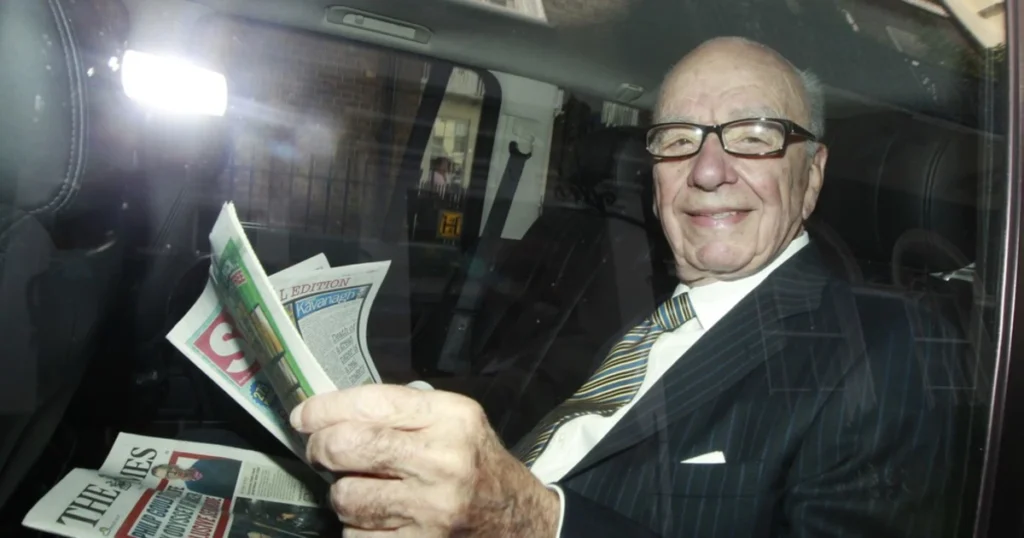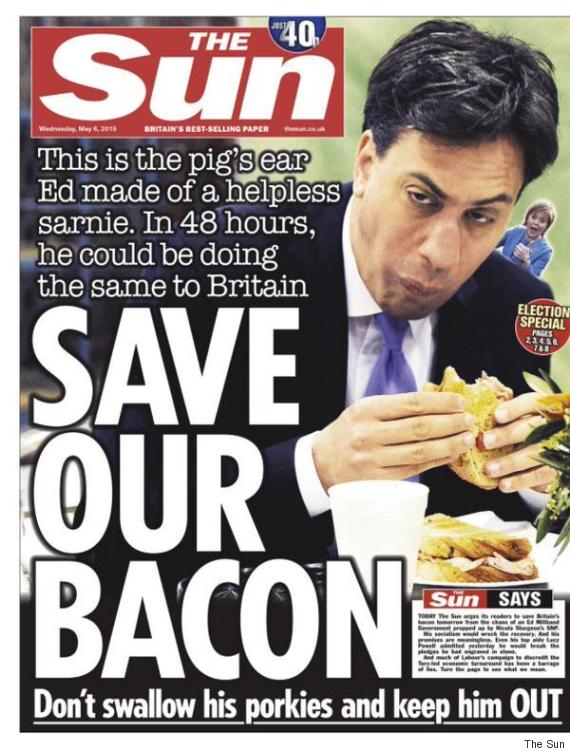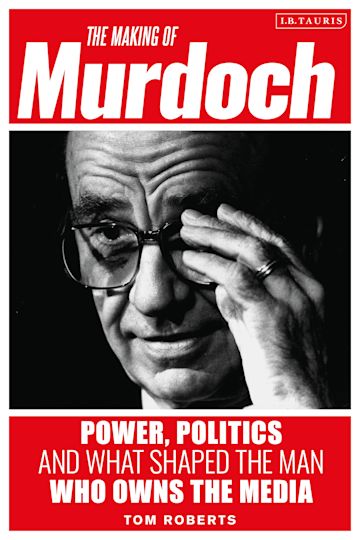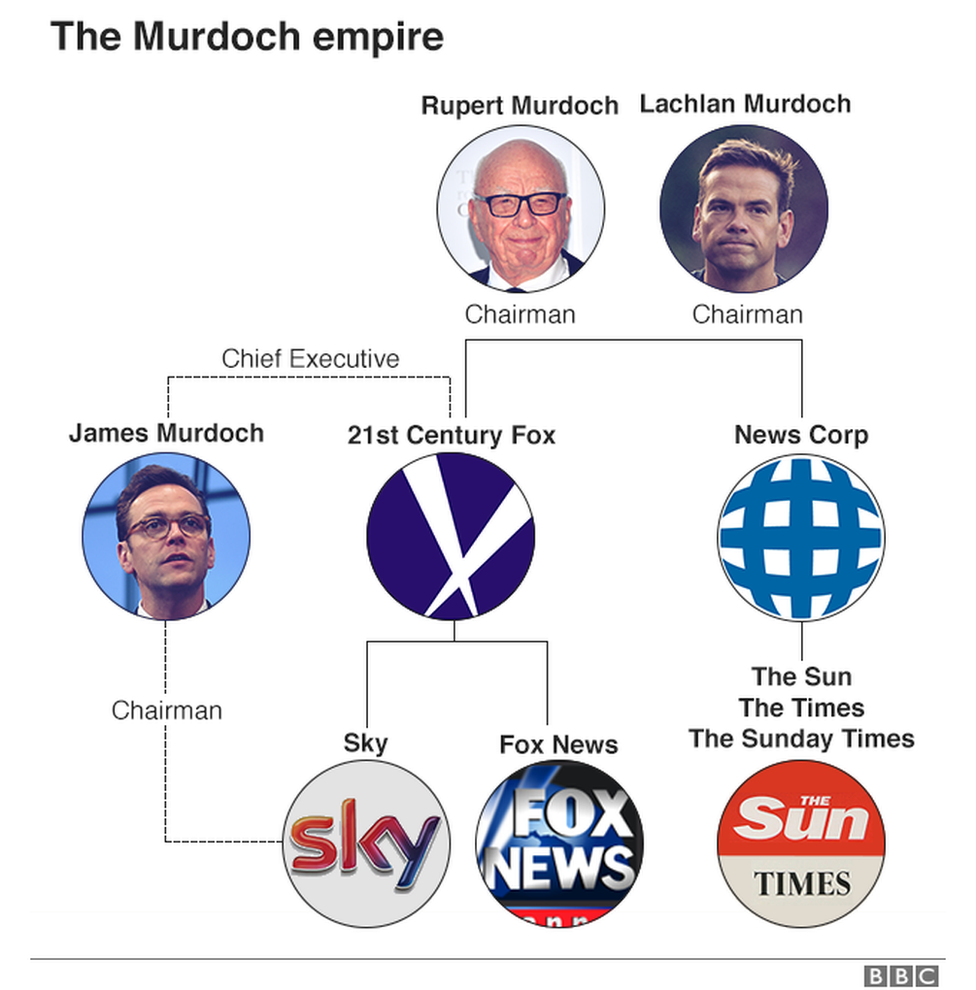The Never Ending Murdoch Empire

Rupert Murdoch was born on 11 March 1931 in Melbourne, the second of four children of Sir Keith Murdoch (1885–1952) and Dame Elisabeth Greene, of English, Irish, and Scottish ancestry. His Scottish-born paternal grandfather, Patrick John Murdoch, was a Presbyterian minister. Despite (or because of this) background when Murdoch bought the struggling Sun newspaper in 1969, he informed his newly appointed editor ‘Larry’ Lamb: “I want a tearaway paper with lots of tits in it”.
Murdoch had also acquired the News of the World and innovated by printing both newspaper on the same press. Twenty years later, by 1987 The Sun had 10 million daily readers.
It’s not clear who was the parasitic host – Thatcher or Murdoch – but it is true that neither’s success would have been possible without the other – smashing unions and promoting an unprecedented populist rhetoric against the feckless poor and a media diet of casual misogyny racism and homophobia that set the standard for public discourse from the on.

At the time of the investigation into the debacle of the News of the World phone-hacking scandal, Murdoch was seen jogging in central London donning a cap marked ROSEHEARTY. Rosehearty was the fishing village on the Aberdeenshire coast where his family had come from, and been Free Church of Scotland ministers. But as Tom Roberts tells us the cap was from Murdoch’s superyacht Rosehearty. In The Making of Murdoch: Power, Politics and what shaped the man Who Owns the Media’ Roberts describes how: “World leaders had been guests on that yacht, and had seen the dining room with its wall-wide map of the world – with America at its centre the scene of secret unrecorded meetings. It was the stateless zone of the super-rich where deals could be struck and the media and political world carved-up beyond the reach (the irony) of the telephoto lens.”

If Murdoch’s sordid empire spawned the Papparazzi and the Page Three, and Richard Littlejohn and a hundred toxic columnists and a politics of hate – and the hacking of the phones of dead schoolchildren – the vilification of those who suffered at Hillsborough – and a clandestine network of a political and media class – and it did all of this and more – it did something far worse.
If Murdoch’s empire mastatised into ‘entertainment’ and broadcasting and across continents it is arguably not the worst aspect of his legacy. In 2008 having tired of support for New Labour, Murdoch flew (then opposition leader) David Cameron by family jet to meet him on his Rosehearty super-yacht. With his support Cameron would win the forthcoming election and we’ve been under Conservative rule ever since. But what is worse than the Murdoch’s tabloid culture here and their courting and cultivating the political far-right – is the extent of global reach, the completely unregulated global media power that such individuals wield. It is the ‘stateless zone of the super-rich’ that we have witnessed emerging in the last two decades, the era of Musk and Zuckenberg, Bezos and Branford, the tech giants and the media moguls. This is the world as written about by William Rees-Mogg, The Sovereign Individual: The Coming Economic Revolution and How to Survive and Prosper in It. In this remarkable fantasy these millionaires and billionaires have re-set themselves as plucky outsiders, Edgelords and disruptors fighting the good fight against the ‘establishment’. It’s an extraordinary feat of self-deception born from extreme narcissism.

It is this stateless range that defines the Murdoch era, an immigrant Scot to Australia who naturalised to American citizenship to satisfy media-ownership laws but who conducts affairs at sea, making and breaking political candidates, premiers and Prime Ministers. It is a dark paradox that an individual who regularly stokes the enmity of nationalism and racism – Trump’s election and Brexit would not have been possible without him – operates beyond and above national borders and controls, physically, morally and legally.
Such is the power and powerlessness at play little of this other than the individual faces will change. In a departure letter to staff Murdoch made it clear that he would be placing his third child and oldest son in charge. “My father firmly believed in freedom, and Lachlan is absolutely committed to the cause,” he wrote about the new chairman of his media empire. Lachlan we are told is even more libertarian and rightwing than his father. If you can believe it the Lachlan transition will lead the Murdoch empire further to the right.
|
Rupert Murdoch has had a decades-long influence in media across the world. It has caused millions of Americans to fall into the grips of Trumpism, millions of people in Britain to fall into a politics of hate and blame. The fundamental damage to our democracy cannot be overstated, nor can the damage to the concept of truth itself. The tabloidisation of our society and our wider culture is damaging beyond description.
Labour came under the spell of Murdoch – after seeing Michael Foot, Neil Kinnock (and later Jeremy Corbyn) be mauled to death by the Murdoch media. No more craven example of this can be seen than former Labour deputy leader Tom Watson who gushed: “Congratulations to Rupert Murdoch for pulling off a seamless transition within the family’s global media empire — something no U.K. political leader has ever achieved at Number 10″.
Watson added: “It’s the son what won it.”
Watson may be a particularly supine individual but even this is crass for his political class. The reality is as another former deputy leader, John McDonnell said: “Murdoch dragged journalism and politics into the gutter where truth and basic journalistic standards were rendered irrelevant. He debased the quality of political discourse in this country.”
What can you do but watch and weep and chart the descent?

…and Starmer and Sarwar were happy to take along their long spoons and sup with Murdoch at his annual arse-licking dinner earlier this year .
I’m not sure that ‘smashing unions and promoting an unprecedented populist rhetoric against the feckless poor and a media diet of casual misogyny racism and homophobia’ set the standard for public discourse back in the ‘80s. As I remember it, public discourse at the time embraced a wide range of voices and standards. It wasn’t exactly an ‘ideal speech situation’, but the discourse was far from singular. You could always find a narrative that suited you and you could get behind in the national conversation.
Murdoch’s genius lay in recognising the public appetite for smashing unions, punishing the feckless poor, misogyny, racism, and homophbia at the time. It sold newspapers and television; it also elected parliamentary majorities. The information that Murdoch mediated cultivated and fed that majority appetite which found expression through the ballot-box.
Tastes change, but the public still like a good conspiracy theory. The image of Rosehearty as a kind of stateless zone, where world leaders and the super-rich strike deals and carve-up the political world in secret meetings, beyond the reach of the telephoto lens, is just the sort of ‘alt-right’ populist rhetoric that will appeal to the public’s sense of victimhood and sell copy and win votes. Murdoch has become the new Rothschild, the only difference being that he isn’t Jewish.
The tabloid culture over which Murdoch has loomed for so many decades is hardly edifying. But we don’t need a conspiracy theory to explain it. It’s simply good business in a news and entertainment market that’s dominated by a salacious appetite for sensationalism and victimhood, for the presentation of stories in a way that spikes interest or excitement, over accuracy or critical discernment. Murdoch has successfully cornered and exploited that market.
I’m not convinced of the paternalistic argument that this market should be regulated in ways that ensure we only get to consume ‘politically correct’ news and television content; that is, news and television that the regulating authority deems good for us. We’re not helpless victims here; we can actively seek out and consume the narratives that we ourselves, without external judgement, deem appropriate to our needs. The currently widespread penchant for ‘correct’ or ‘wholesome’ news and entertainment is the last stand in an ethos of democracy or a pre-democratic, totalitarian dirigisme, an insistence on social control that’s unwilling to let people go their own way into a social diversification that affiliates each not to all but only to such kindred spirits as circumstances might offer.
Democracy requires that voices like Murdoch’s – however much we dislike and disapprove of them – aren’t ‘cancelled’. It requires a public discourse that encompasses a wide range of voices and standards.
This is a parody account
That’s lame.
“Democracy requires that voices like Murdoch’s – however much we dislike and disapprove of them – aren’t ‘cancelled’.”
Come on, be serious
I am being serious. As I say, democracy requires a public discourse that encompasses a wide range of voices and standards, including (and perhaps especially) those we don’t like and of which we disapprove. Why’s that not a serious point to make?
As I said in the paragraph immediately preceding the summation you quote, I’m not convinced by the paternalistic argument that news and entertainment market should be regulated in ways that ensure we only get to consume content that’s ‘politically correct’; that is, content that some regulating authority of which the speaker approves deems good for us. We’re not helpless victims here; we can actively seek out and consume the narratives that we ourselves, without external judgement, deem appropriate to our needs. The currently widespread penchant for only ‘correct’ or ‘wholesome’ news and entertainment is the last stand in an ethos of democracy or a pre-democratic, totalitarian dirigisme, an insistence on social control that’s unwilling to let people go their own way into a social diversification that affiliates each not to all but only to such kindred spirits as circumstances might offer.
And, as I say below, no competitor in the news and entertainment market should be allowed to become too big and powerful (as Murdoch undoubtedly did). To approximate to the ‘ideal speech situation’ of democratic discourse, each voice in our actual public discourse should have equal opportunity to be heard and carry equal weight; none should be excluded or disadvantaged. Our current discourse might not be singular, according to the totalitarian ideal, but its plurality is far from equal according to the democratic ideal. To improve our democracy, the structure (rather than the content) of our public discourse does need to be better regulated towards meeting the conditions of ‘ideal speech situation’ I’ve outlined on a number of occasions elsewhere on Bella.; that is, it needs to be made more freely competitive.
Of course, you’re free to take such arguments seriously or not as you will. They’re not to everybody’s taste.
The point that no competitor in the news and entertainment market should be allowed to become too big and powerful is a good one, though. To approximate to the ‘ideal speech situation’ of democratic discourse, each voice in our actual public discourse should have equal opportunity to be heard and carry equal weight. Our current discourse might not be singular, according to the totalitarian ideal, but it’s far from equal according to the democratic ideal. To improve our democracy, the structure (but not the content) of our public discourse does need to be better regulated towards meeting the conditions of ‘ideal speech situation’ I’ve outlined on a number of occasions elsewhere on Bella.
Let me see if I have understood correctly the full complexity of the relationship between Murdoch and The UK Labour Party (Old and/or ‘New’) as presented to us above:
Tom Watson was a craven catspaw in the hands of the ‘Dirty Digger’ whilst John McDonald opposed him frontally.
‘That’s it’ !
Are you sure? Quite sure?